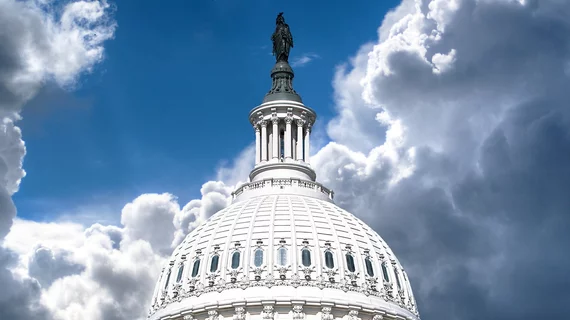Bipartisan senators introduce ‘major’ healthcare bill seeking price transparency from imaging centers
A bipartisan group of U.S. senators has introduced what they say is a “major” healthcare bill seeking greater price transparency from imaging centers and other providers.
Beginning Jan. 1, 2025, the Health Care PRICE Transparency Act 2.0 would require public disclosure of all negotiated rates and cash prices. It also would mandate the reporting of actual prices for 300 shoppable services by next year.
To enforce the use of these new transparency measures, lawmakers want to increase the maximum annual penalties to $10 million.
“It’s wrong that the same procedure can be 20 times more expensive in one hospital than in another, and there’s no other industry where consumers are in the dark on the price of what they’re buying,” co-sponsor and Sen. Mike Braun, R-Ind., said in a Jan. 10 announcement. “Knowing what healthcare services cost will lower healthcare prices because Americans can shop around and get the best deal rather than relying on insurers to negotiate with providers, which drives the price up for everything.”
Others co-sponsoring the bill include Sens. Chuck Grassley, R-Iowa, Tina Smith, D-Minn., John Hickenlooper, D-Colo., and Bernie Sanders, I-Vt., who also is chair of the Health, Education, Labor and Pensions Committee.
Those involved said the bill would expand transparency requirements to imaging centers, clinical diagnostic labs and ambulatory surgery centers. It also would require machine-readable files for all negotiated rates and cash prices between plans and providers (not estimates). Plus, the legislation would require uniform pricing data standards and attestation by executives that all estimates are “accurate and complete.”
The Senate bill comes after the U.S. House previously passed the Lower Costs, More Transparency Act on Dec. 11 in a 320 to 71 vote. H.R.5378 would similarly require imaging providers and ambulatory surgery centers to publicly list prices they charge patients. The American Society of Nuclear Cardiology criticized the House bill, contending it included provisions “duplicative of payer requirements” and would impose an “unnecessary administrative burden on physician practices.”
In his own separate announcement, Sen. Grassley noted that S. 3548 stems from policies implemented by President Trump via executive order in 2019. It also would build on a bill and related effort Iowa’s senior senator pushed last Congress.
“Despite support from consumers, not all hospitals and insurers welcomed the regulatory change,” Grassley’s announcement said. “Some hospital groups even sued in unsuccessful attempts to keep consumers in the dark about healthcare costs. Among other things, the Health Care PRICE Transparency Act 2.0 would put these sunshine regulations into statute and beef up accountability.”

